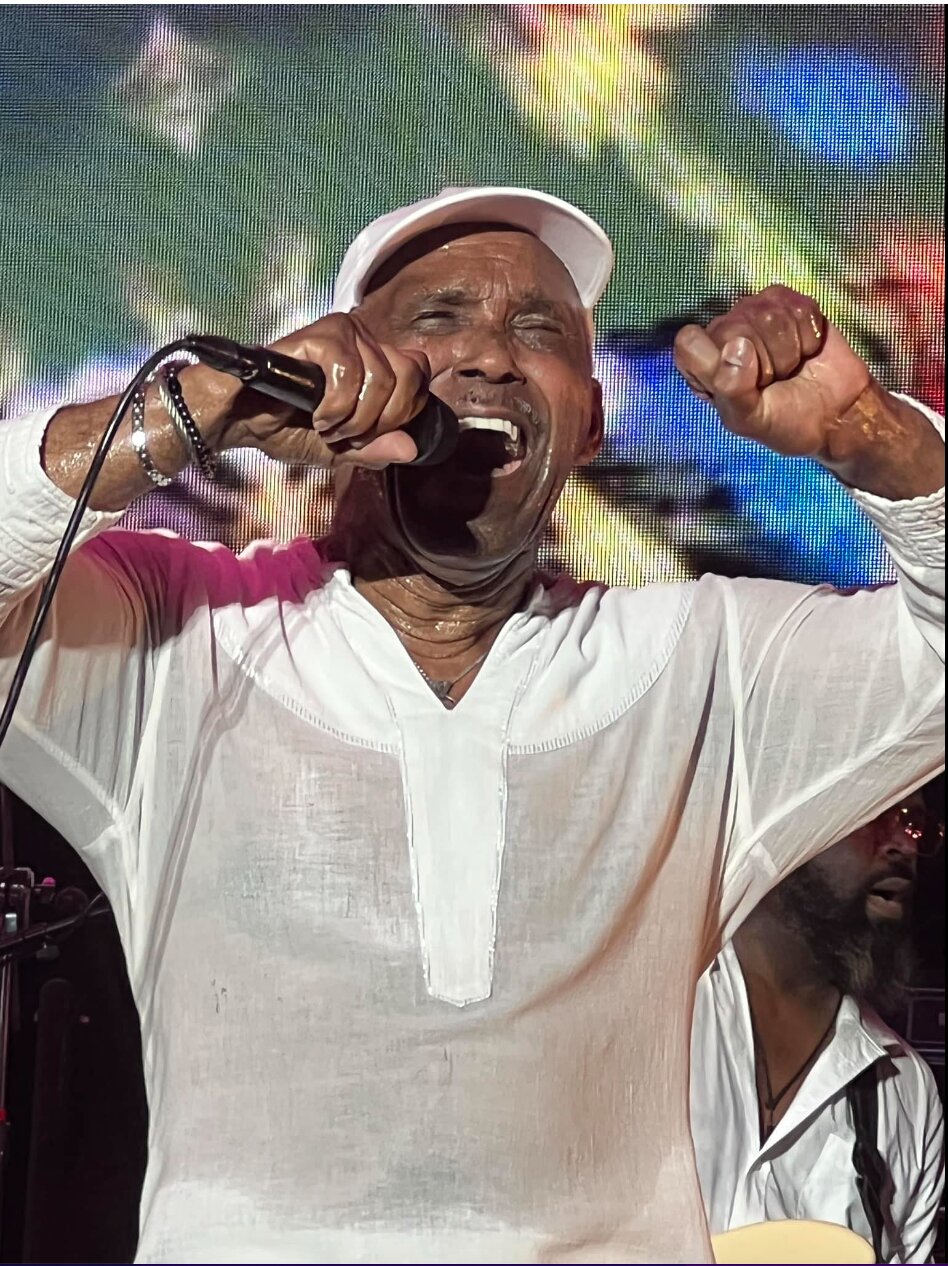The joy, pain and happy feelings Frankie Beverly shared with Detroit
It seemed like for years, there were two guarantees every Detroit summer: A storm-induced blackout, and Frankie Beverly and Maze at Chene Park.

It seemed like for years, there were two guarantees every Detroit summer: A storm-induced blackout, and Frankie Beverly and Maze at Chene Park.
Chene Park is of course now rechristened as The Aretha, but for decades, the Bay Area-via-Philly band — whose frontman, Beverly, died this week at age 77 — would make a near-annual stop at the outdoor venue. Beverly, usually dressed in all white linen (as well as much of the crowd), played countless shows in Detroit over the years, squeezing in one final stop at The Aretha in August 2023 amid the band’s farewell tour.
It’s fitting that Maze spent considerable time in Detroit, considering an early chapter of their origin story begins with Motown — in a way. After recording for a small label and not reaching any success, a chance meeting with Marvin Gaye’s girlfriend in the early 1970s led the band on a path to prosperity. Gaye, fresh off the success of his “What’s Going On” album, took the band on the road with him, where they were one of his opening acts for years. (Gaye also suggested the band change its then-name from Raw Soul to Maze.)
After Gaye died in 1984, Beverly and his band paid tribute with the cut “Silky Soul,” with lyrics of “a man I knew who was smooth as smooth can be/His music his smile, and his sweet sweet melody.” It was one of many hits in their repertoire, including “Happy Feelin’s,” “Before I Let Go,” “Back in Stride,” and “Can’t Get Over You.”
If one were to measure success by record sales, Maze astonishingly never sold millions upon millions of records, despite their songs — particularly “Before I Let Go” — becoming staples on Black radio and must-plays at cookouts and wedding receptions. But their constant touring, rock-solid catalogue and loyal fanbase earned comparisons to The Grateful Dead, another band who technically never reached dizzying heights of commercial success when compared with their omnipresence in the culture.
Detroiters were certainly loyal. At the close of his talk radio show, the late Angelo Henderson always offered words of encouragement and wisdom as Maze’s “We Are One” — lyrically a plea for a relationship to heal, but can be interpreted as a community’s need to come together as well — played in the background. Hip-hop heads are familiar with a sample of “We Are One” famously interpolated into the iconic “Take Money to Make Money” from Stretch Money. That song, arguably one of the Mount Rushmore of Detroit anthems, was produced by hometown wonder Helluva, earning him enough radio play for other artists like Doughboyz Cashout to seek him out.
“Y’all know that was my boy,” Detroit native and quiet storm legend Donnie Simpson posted in the wake of Beverly’s passing. “I love you so much, my brother.”




